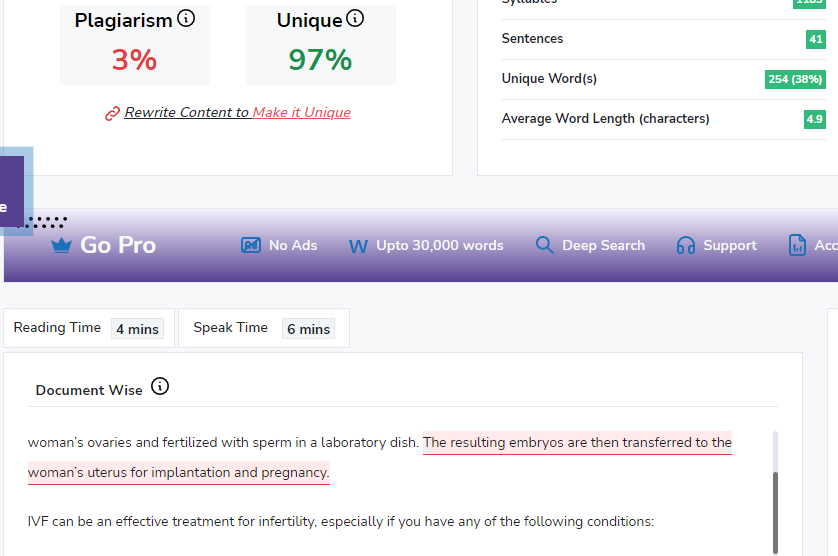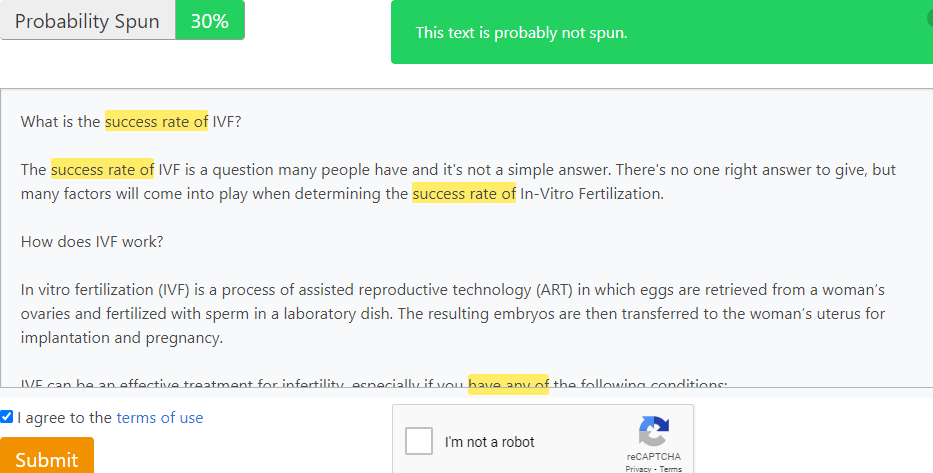
The success rate of IVF is a question many people have and it’s not a simple answer. There’s no one right answer to give, but many factors will come into play when determining the success rate of In-Vitro Fertilization.
In vitro fertilization (IVF) is a process of assisted reproductive technology (ART) in which eggs are retrieved from a woman’s ovaries and fertilized with sperm in a laboratory dish. The resulting embryos are then transferred to the woman’s uterus for implantation and pregnancy.
IVF can be an effective treatment for infertility, especially if you have any of the following conditions:
According to the American Society for Reproductive Medicine (ASRM), the success rate of IVF depends on a number of factors, including the age of the patient, the cause of infertility, and the number of embryos transferred. The ASRM reports that patients under 35 with no fertility issues have about a 40% chance of success per cycle, while patients over 40 have about a 10-20% chance of success per cycle.
In vitro fertilization, or IVF, is a fertility treatment that involves retrieving eggs from a woman’s ovaries, fertilizing them with sperm in a laboratory dish, and then transferring the resulting embryos into the woman’s uterus.
IVF is often used as a last resort for couples who have been unable to conceive through other methods, such as artificial insemination or intrauterine insemination.
The success rate of IVF depends on many factors, including the age of the woman, the cause of infertility, the number of eggs retrieved, and the quality of the embryos.
In general, women under 35 have a higher chance of conceiving with IVF than women over 35. The live birth rate for women under 35 is about 40%, while the live birth rate for women over 35 is about 30%.
However, it’s important to remember that every couple’s situation is unique and that success rates can vary depending on the individual circumstances.
According to the American Society for Reproductive Medicine (ASRM), about 60% of couples who use IVF will conceive.
There are many factors that affect a couple’s chance of conceiving with IVF. These include the woman’s age, the quality of her eggs, the health of her uterus, and the cause of infertility.
Some couples may have a higher chance of success with IVF than others. For example, younger women and those with healthy eggs have a better chance of conceiving with IVF. Couples who are infertile due to blocked fallopian tubes or sperm problems also have a higher success rate with IVF.
IVF is not right for everyone. Couples should talk to their doctor about their specific situation to see if IVF is right for them.
There are a number of potential side effects from IVF, some of which can be quite serious. These include ovarian hyperstimulation syndrome (OHSS), multiple births, and premature delivery. OHSS can cause pain, bloating, and nausea, and in severe cases can lead to kidney failure or blood clots. Multiple births are more likely with IVF than with natural conception, and can cause problems for both mother and child during pregnancy and delivery. Premature delivery is also a risk with IVF, as is low birth weight. Fortunately, most side effects from IVF are mild and temporary, and the vast majority of women who undergo the procedure go on to have healthy babies.
The success rate of IVF varies depending on a number of factors, but it is generally successful. However, this does not mean that IVF is the right choice for everyone. If you are considering IVF, be sure to speak with your doctor about all of the potential risks and benefits before making a decision.

